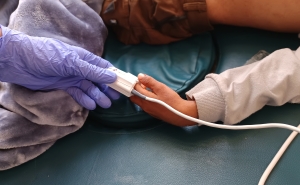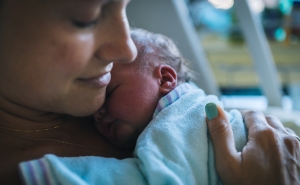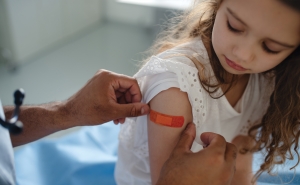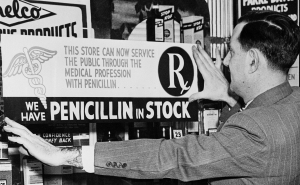Why COVID-19 Vaccines Offer Better Protection Than Infection
Vaccination offers longer, stronger immunity, says virologist Sabra Klein.
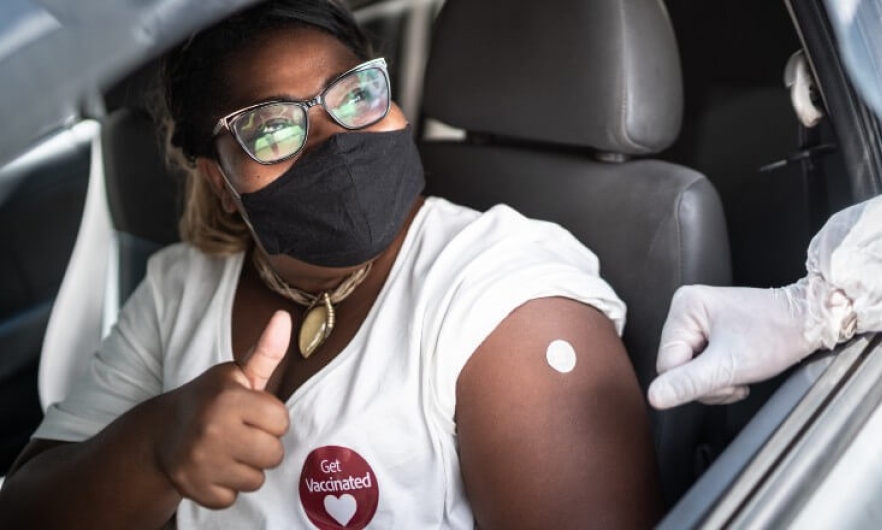
INTERVIEW BY BRIAN W. SIMPSON
Misconceptions about COVID-19 vaccines abound. Some common ones: If you’ve had COVID-19, you don’t need the vaccine. Wrong. It’s better get naturally infected than to get vaccinated. Wrong.
Virologist Sabra Klein, PhD ‘98, MS, MA, says an immense amount of data collected in a short time have made clear the safety and effectiveness of vaccines and the limited immunity that comes from being infected with the SARS-CoV-2 virus. Klein is co-director of a new National Cancer Institute Center of Excellence that seeks to understand more about the diversity of immune responses and how sex, age, and other factors lead some people to have longer lasting immunity than others.
In the following Q&A, the Molecular Microbiology and Immunology professor explains the nitty gritty of vaccines, coronavirus infections, and how to best protect yourself. Spoiler alert: Klein is a big vaccine fan.
If someone has had COVID-19, why should they get vaccinated? Don’t they already have immunity?
If you’ve been infected, you have some protection. But that immunity has limits. The biggest limit is that it doesn’t last as long as we would like it to.
Studies have shown that people who have been infected can benefit significantly from vaccination. It gives them a strong, lasting immunity boost. After receiving the first dose of the Pfizer or Moderna vaccine, they have immunity levels comparable to those of uninfected people who have received their second dose.
We’re still trying to better understand why immunity lasts longer for some people than others. Underlying factors like obesity or age appear to play a role in how long immunity lasts.
How long does immunity last from being infected? From vaccination?
Immunity from natural infection starts to decline after 6 to 8 months. We know that fully vaccinated people still have good immunity after a year—and probably longer.
Why is it that the vaccine leads to better immunity than natural infection?
The honest truth is, we don’t know. The immune system of people who have been infected has been trained to target all these different parts of the virus called antigens. You’d think that would provide strongest immunity, but it doesn’t. The Pfizer or Moderna vaccines target just the spike protein—the part of the virus that is essential for invading cells. It’s like a big red button sitting on the surface of the virus. It’s really sticking out there, and it’s what our immune system sees most easily. By focusing on this one big antigen, it’s like you’re making our immune system put blinders on and only be able to see that one piece of the virus.
Does the severity of infection make a difference in immunity? If I had a terrible case of COVID-19 infection, will I have stronger immunity?
Absolutely. My lab here at the Bloomberg School and others have shown that people who were hospitalized, who were really sick with COVID, in many cases are believed to have greater immunity than people with less severe disease. But again, that immunity may be declining. So, even if you had a more severe case, you still should plan to get vaccinated.
Let’s talk about variants of the coronavirus. Do vaccines also provide better protection against them?
The good news is that the current vaccines recognize these variant viruses and induce excellent immunity against them. For people who were previously infected and have high immunity, they have will have pretty good recognition of these variants, but you don’t really know your level of immunity against a specific variant or how degraded your immune response may be. You might actually be susceptible to reinfection with one of these variants. You just can’t predict it.
So, rather than flipping a coin, get vaccinated.
Some people say they would rather be infected naturally than get vaccinated. Others say they’re worried about vaccine side effects. What would you tell them?
Vaccines are tested for their safety in ways that we could never do with a natural viral infection. A lot of what’s referred to as side effects are the precise things that we experience to a greater degree when we are infected: fever, headache, malaise, gastrointestinal issues, etc. With infection, you don’t know how bad it’s going to be. By not getting vaccinated, you’re rolling the dice. You may become severely ill. You may have to be hospitalized. You may die.
There’s also the risk of long COVID. I know a teenage girl who got COVID before the vaccines were available. She didn’t have a lot of symptoms, but now she has all of the symptoms of long COVID. A year later, she is trying to maintain a somewhat normal teenage life with profound fatigue. She has never recovered fully from having COVID.
What about vaccines if you’re pregnant?
At this stage, there is no reason for a pregnant woman not to get vaccinated. We know that pregnant women are at increased risk for more severe outcomes from COVID-19. They’re more likely to be hospitalized than nonpregnant women. And we know the vaccines are safe. They’re effective. And they can, at least, reduce the severity of disease among pregnant women, resulting in improved or normal pregnancy outcomes. This idea that someone who’s pregnant should roll the dice and risk getting infected rather than getting vaccinated is not a good decision.
Brian W. Simpson, MPH ’13, is editor-in-chief of Hopkins Bloomberg Public Health magazine and Global Health NOW and director of editorial at the Bloomberg School.

